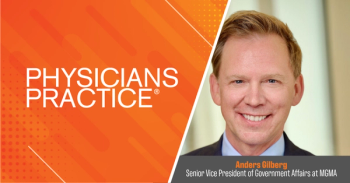
Medical directors are more than just a title
Recent cases underscore that what a medical director is paid must be of fair market value and the CMS duty requirements must be met.
It sounds simple enough: You get paid what the market bears to assume the role as a medical director. Medical directorships are used throughout the healthcare industry in a variety of situations, ranging from dialysis centers to skilled nursing facilities to long-term care entities.
Yet, there are often situations where a physician holds the title of medical director. The physician, however, does not necessarily perform any substantive roles or functions, but the title is sometimes given to induce patient referrals to the facility. These types of situations can - and do - give rise to liability under the
.
In November 2005, the
In order to assess whether medical directors are fulfilling their responsibilities, CMS stated the following:
· Review relevant policies and/or procedures;
· Interview facility leadership “(e.g., Administrator, DON) to determine how or if they involved the medical director in developing, reviewing and implementing policies and procedures regarding clinical care of residents (especially where these involve medical and clinical issues; for example, management of causes of delirium, falling and weight loss) to ensure that they are clinically valid and consistent with current standards of care;”
· Interview the medical director regarding the scope of services and the facility’s capacity to care for residents with complex or special care needs.
Failing to adhere to these standards can land both physicians and the facilities in hot water under the False Claims Act. For example, the
Specifically, the lawsuit alleges that Doctor’s Choice and its two owners knowingly “paid kickbacks in the form of sham medical directorships to three physicians to refer patients to Doctor’s Choice. All three physicians allegedly did little, if any, of the work for which Doctor’s Choice paid them as medical directors. Sham medical director agreements to induce patient referrals violate the Anti-Kickback Statute and Stark Law. Doctor’s Choice also allegedly paid some employees in a manner that accounted for the volume of referrals by their physician spouses, in violation of the Stark Law.”
When assessing whether or not an agreement is legitimate, ask these four questions:
1. Is there more than one medical director at a facility?
2. Is the physician(s) in a position to influence referrals?
3. Has a Stark Law exception and Anti-Kickback safe harbor met?
4. Is the director meeting his/her responsibilities as required under the law for the specific facility that he/she is working with?
Physicians, medical professionals and facilities should appreciate the legal liability for not performing the requisite functions. They should also ensure they are meeting an Anti-Kickback safe harbor and a Stark Law exception.
Newsletter
Optimize your practice with the Physicians Practice newsletter, offering management pearls, leadership tips, and business strategies tailored for practice administrators and physicians of any specialty.






